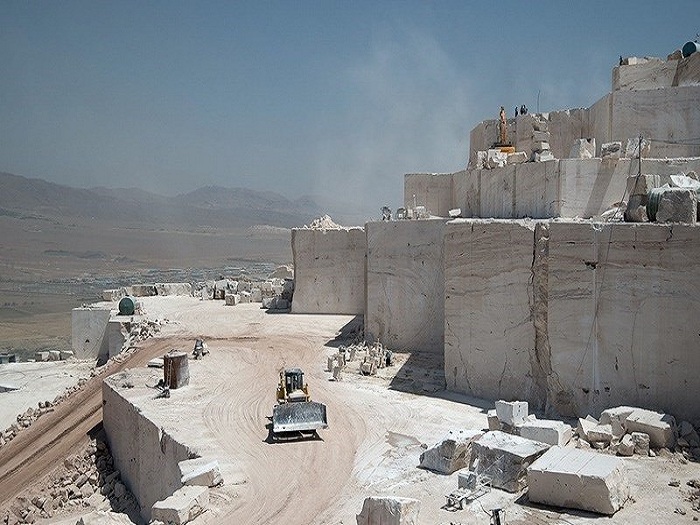Consultation with organizations requires the High Council of Mines

The participants of the meeting of the Mining Policy Council of Iran emphasized the necessity of consulting with the Higher Council of Mines in the new period of their activity with the organizations and activists of this sector.
According to the International Stone Exhibition of Iran, the issue of tolls on mineral exports as the most important issue in this section was raised especially by the activists in the field of iron, lead and zinc, decorative stone and facade, and participants pointed out that the undesirable effects of this Politics in the mineral economy is tangible.
Iran Mining House chief Mohammad Reza Bahraman said at the meeting: The chain of stoppage of mineral exports due to the implementation of a policy of levying duties on minerals exports, while affecting the activity of mines, also presents a serious problem for the mineral export transportation network. Facing construction.
He pointed out that the decorative stone sector suffered a lot of damage from the policy of exporting minerals, and that it was a "zero" philosophy to take tolls to prevent damage to domestic factories.
In September this year, the Ministry of Industry, Mining and Trade set export tariffs for exports of some minerals in the range of 10% to 25%. This increase in tariffs was in line with the high growth in world prices of minerals and consequently increased export profitability. On September 26, the Islamic Republic of Iran's Customs Office took effect on September 1.
Deputy Minister of Industry, Mining and Commerce Ja'far Sarkhini recalled that iron ore export duties had dropped from eight to twenty-five percent since the beginning of October, saying: "Export duty on iron ore to prevent wastage of the country's mineral resources and Exports of mineral raw materials also stopped.
After four months of implementing a toll policy on exports of certain minerals, CMD, the Ministry of Industry, in a letter to the Islamic Republic of Iran Customs, announced a correction of export duties on some minerals.
According to the decision of the Export Policy Coordination Task Force at the Ministry of Industry, it was mandated to amend the 10 to 25 percent increase in mineral exports, to be implemented and enforced from February 10 this year. Accordingly, the effects of copper ore and its concentrate decreased from ten to five percent. Export duties on chrome ore and its concentrate decreased from twenty-five to ten percent, and lead and concentrate decreased from twenty to twelve percent. Meanwhile, to meet the needs of the steel smelter industries, 10% of the duty is applied on exports of sponge iron from the said date.
Bahramman quoted Dariush Ismaili, the new deputy minister of mines and minerals at the Ministry of Industry, saying: "The decisions taken by the mining sector as a policy-making council of this sector will not be made by the deputy minister of industry," Veto ". This section will pose.
He added: "The inspection body is closely monitoring the activity in the mining sector and there needs to be clarification and information is provided on a daily basis."
The head of the mine emphasized: "Today, one has to take into account the fact that the trustee of the mine (the Ministry of Industry - Deputy Minister of Mines) has to defend the mine, because it is his area of practice and there is no doubt that success Mining is considered a success for the miners.
* IRNA










